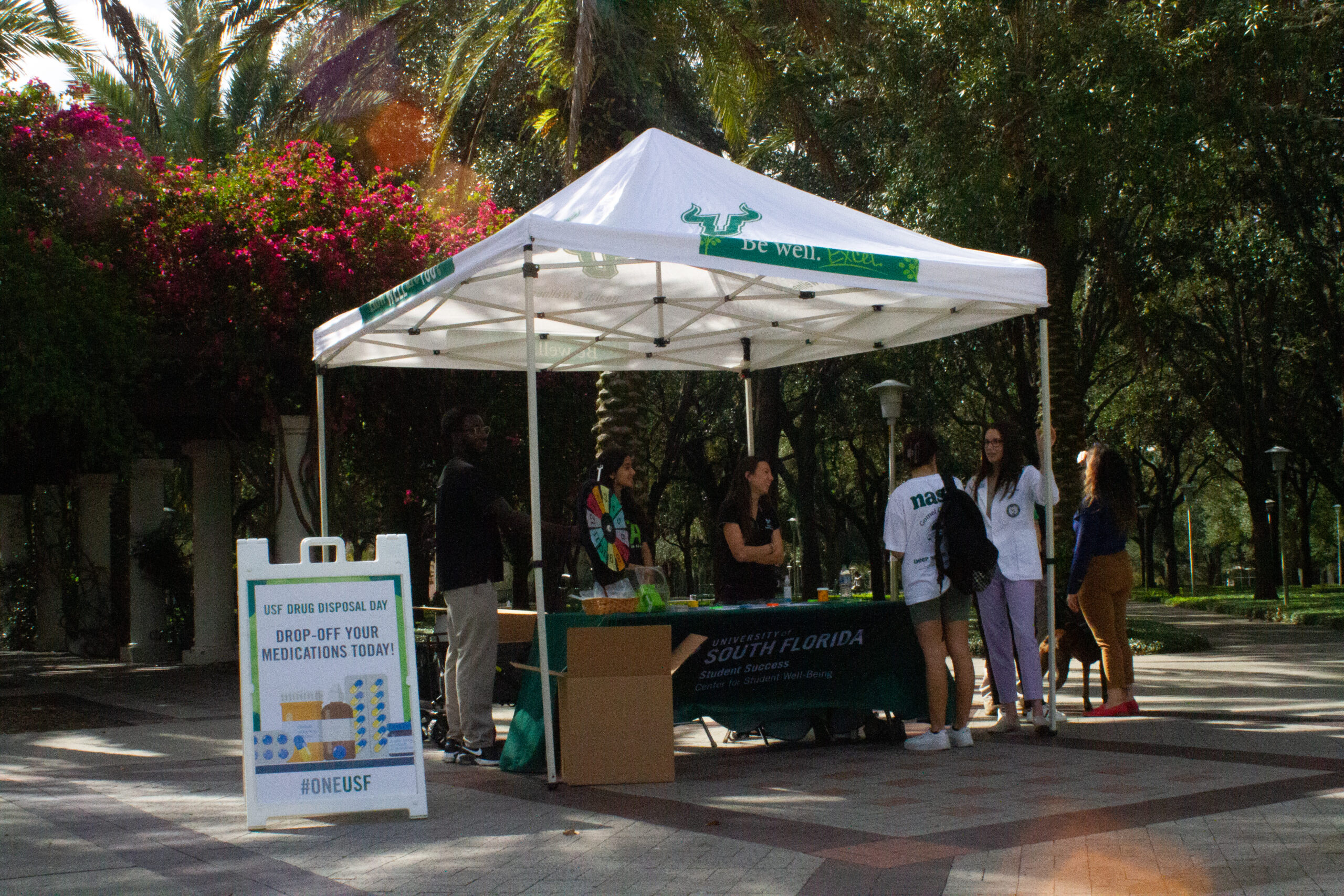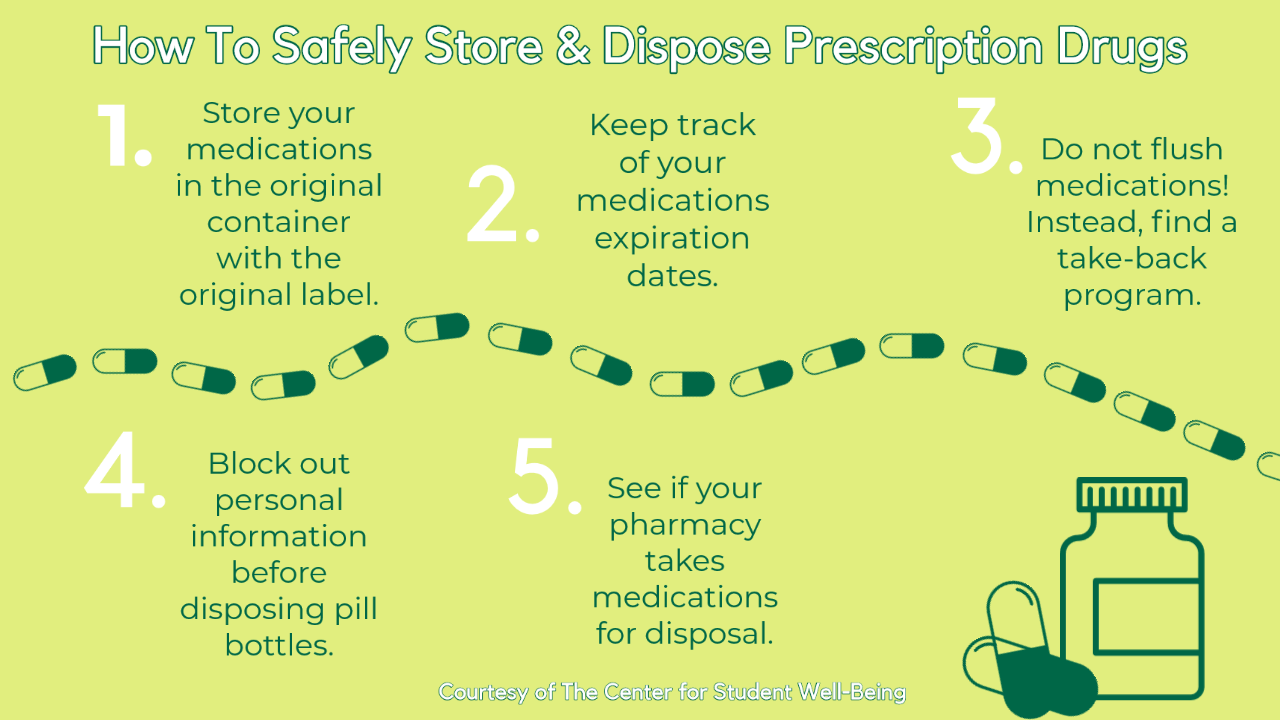Students drop off expired, unused medication for Drug Disposal Day

The Center for Student Well-Being set up a table outside the Marshall Student Center on Tuesday to educate and provide students with a way to properly discard prescription drugs.
Between 11 a.m. and 2 p.m., students could drop off expired or unused medication, including pills, patches and ointments, for free, according to BullsConnect. The group was not accepting inhalers, thermometers or syringes.
The same event was held in March and is regularly brought to the St. Pete campus while advocating drug use awareness, according to Health Promotion Specialist Kathleen Koviak.
Providing drug disposals is essential for school campuses as it ensures students avoid negative side effects from consuming expired medication, Koviak said.
“Just keeping them out of the wrong hands, keep our community safe, keep them out of the environment,” Koviak said. “So that way we can make sure that those products are disposed of safely and properly.”
Expired medication typically means it has gone under chemical recomposition, according to the FDA. As a result, the treatment isn’t as effective and can worsen some conditions.
When disposing of prescriptions at home, students should make an effort to secure their private information, Koviak said. Prescription labels typically contain the patient’s name and the medication they’re taking as well as the location of their pharmacy.
“Remove the label,” Koviak said. “Dump it into like coffee grounds or kitty litter, if they have that. Then put it in a ziplock baggie and you can dispose of it in your normal trash.”

Disposing of expired medication is only part of increasing drug awareness, Koviak said. At the event, students were offered information about how popular recreational drugs, such as alcohol and nicotine, impact the human body.
Another consideration for discarding excess medication is to decrease the likelihood of addiction, according to a Hospital and Healthcare Management article. The nationwide problem of overprescribing, as well as drug effectiveness declining as used, can result in patients developing a dependency that can be difficult to quit.
Koviak said although the university requires incoming students to take a drug awareness module, that only scratches the surface of what they need to know.
“We need to provide that touch point for some students. We might not be able to reach them through the module, but maybe through some of our other programs and educational events,” Koviak said.
The importance of bringing awareness to students goes beyond side effects, according to Koviak. While addressing the dangers of keeping unused prescriptions, she said some students put themselves at risk by mixing illicit medication with alcohol.
“Students trying to maybe get that extra level of intoxication, we know that this can likely cause health problems or even death,” Kodiak said. “So making sure that that is also not available, is essential.”






